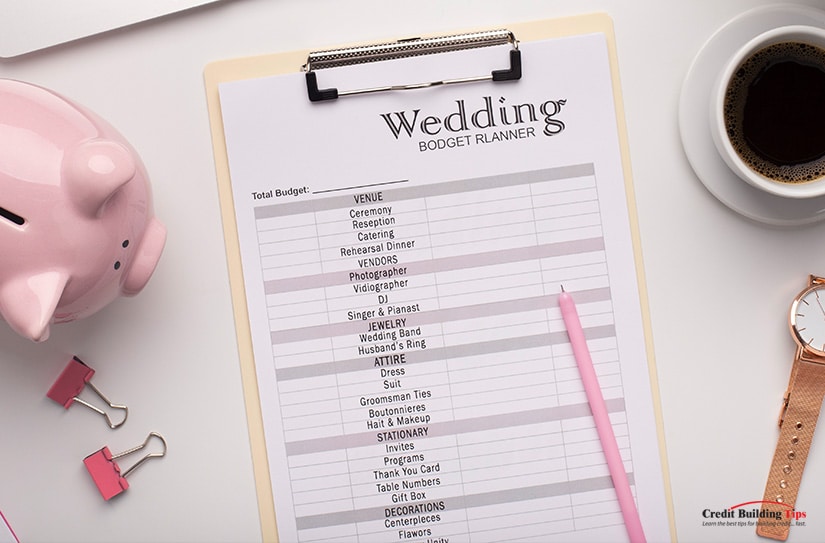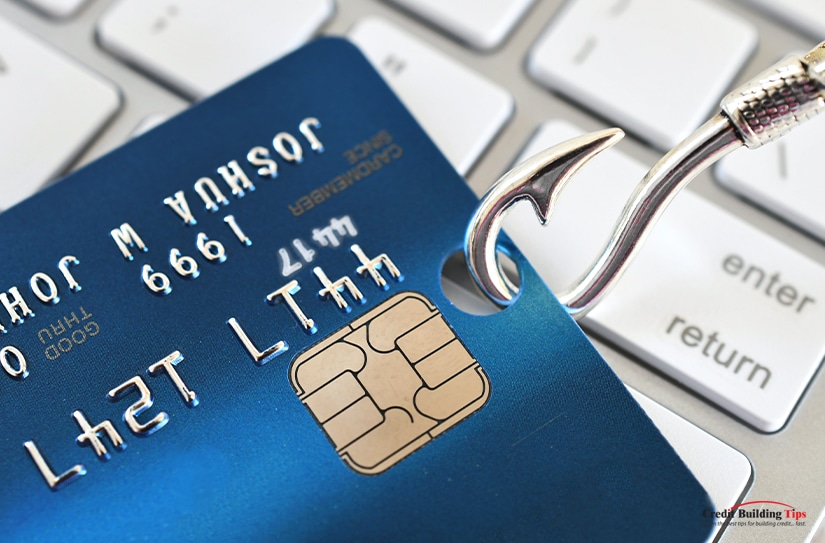Wealth disparity is immense in America. While many of the world's wealthiest people live here, the average American is highly likely to either be in debt or be one bad day away from it.
Of course, not all debt is created equal. Some debt is expected, normal, or even good, and many Americans are in a position where, despite being in debt on paper, their wealth and income make it easy to wipe out that debt if they choose. Some debt is acceptable or even expected: a mortgage is a huge debt.
 Still, according to reports, as much as 25% of Americans are actively managing their debt, and as many as 61% live paycheck to paycheck, one bad event away from debt.
Still, according to reports, as much as 25% of Americans are actively managing their debt, and as many as 61% live paycheck to paycheck, one bad event away from debt.What are the most common causes of debt? We've pinned down 25 of the most common reasons Americans (and people worldwide) fall into debt.
Few people have the $20,000 to $80,000 it takes to purchase a new or lightly-used vehicle when they need it. Yet, most people in America are engineered to require a car to get around. It's a necessary expense for most of us, and most of us have to go into debt to get it. Worse, the lower your credit, the less favorable your loan terms.

With unfavorable loan terms, the debt can worsen over time with interest and penalties, and more challenging to get rid of your monthly payment.
The average American spends as much as 18 days on the road each year. The NHTSA estimates around 5-6 million auto accidents every year, which equates to around one accident every six seconds. Sure, some collisions are little more than some scraped paint, but others are devastating or fatal. Any accident you walk away from is better than one you don't, but the auto repair bills (and medical bills) can be an instant, near-insurmountable debt.

Cars can also be expensive to maintain. Oil changes, new tires, wiper blades, spark plugs, filters, brakes, car washes - these expenses can add up, especially on foreign vehicles or cars with hard-to-find parts. If you suddenly discover that your tires are bald and you rely on your vehicle for work, you may have to put it on your credit card and pay that off over time while focusing on more important expenses.
Everyone needs a place to live. While rental rates are higher now than they have been since 1965, many Americans still buy a house instead of renting an apartment. Making a real estate purchase is a massive debt in the form of a mortgage. It's not bad debt, necessarily, but it is debt nevertheless.

Avoid living above your means, and move into a house with a reasonable mortgage payment. If your mortgage payment gets too challenging to afford, you may consider renting out a room or selling it to purchase a house with a more affordable mortgage payment.
Owning a home is often a giant money sink, and we're not just talking about the mortgage costs, property taxes, homeowners insurance, and other expenses. What happens if a water heater breaks? A furnace? A water leak destroying a wall? Or even just wanting to remodel a room?

These are significant financial investments, and many people go into debt to fix problems when they crop up. Most new homeowners are tempted to buy new furniture and load up their credit cards, but this can be a costly mistake. We can't foresee the unforeseeable, but setting aside an emergency account for home repairs can help ease this burden and reduce your debt.
What might have been a sustainable living situation five or ten years ago may no longer be feasible, but the cost of moving is even worse.

The cost of living has been steadily rising, while wages have stagnated. Thus, credit is used to stay afloat, and debt begins to mount.
The American medical system is among the most expensive anywhere globally while, in some cases, providing some of the least efficient or effective care.

In many cases, it's cheaper to fly to another country, receive medical care, spend time on vacation, and return than it is to receive domestic care. It's no wonder that over half of all Americans carry medical debt.
"Go to college to get a good job" was a common refrain over the decades. In the past, it was even true. Today, higher education is often dramatically more expensive and less valuable than at any point in history.

There are outliers, but in many cases, the cost of receiving a degree is higher than the benefit it brings to wages, leading to a student debt crisis of unprecedented proportions.
Marriage is a significant expense, as many people have a "dream wedding" they want to host, regardless of the cost. Even without such an expense, getting married typically means sharing financial responsibilities, which can mean taking on a spouse's debt.

Many couples take on debt during this time, and it's essential to keep an eye on it to keep it from getting out of hand. Honeymoons can get expensive, and of course, you can't forget the cost of a ring or a wedding gift.
Many people underestimate just how expensive it is to raise a child. The estimated cost of raising a child from birth to 18 is estimated to be over $270,000, and for many modern families, the financial burden doesn't end at 18.

Even the hospital visit to give birth can cost tens of thousands of dollars. Unexpected expenses can end up on the credit card, and credit card debt can quickly grow out of control.
The separation of a couple brings with it any number of financial burdens. A contentious divorce brings in legal fees and more.

Even an amicable divorce can lead to anything from child support to a dramatic loss of income to a loss of assets.
Underemployment isn't as widely discussed as unemployment, but it's perhaps worse. Underemployment is a case where an individual is forced to work a job they are overqualified to handle because they can't find another option.

The stereotype of a college graduate with a Master's degree working as a barista is an easy example. Underemployment is closely related to stagnated wages and debt in many ways.
A loss of employment, often sudden, can be devastating. As mentioned above, well over half of all Americans live paycheck to paycheck. When those paychecks cease, debt looms immediately.

Even in the best-case scenario, finding a new job can take weeks, and debt can rack up.
Millions of Americans dream of opening and owning their own business. Indeed, being a successful business owner is one way many people can pull themselves out of debt. However, the risk is high. Statistics indicate that over 50% of all new businesses fail before five years.

Often, people invest their funds to keep the company afloat longer than it should survive and go into debt to do it. This example is prevalent, and businesses can be costly to maintain during slow periods.
You may note that most of the causes of debt on this list are outside influences or circumstances beyond your control. One of the few that could be considered a "personal failing" is living outside of your means.

Many people have enough income to live comfortably but choose to live in comparative luxury and pay the price. Even then, societal pressures could be equally to blame.
Everywhere you look, especially in times of financial stress, there are stories of people who make a good stock pick or invest in the right cryptocurrency at the right time and cash out millions. While this is no more likely than winning the lottery, it tricks many people into thinking they can time the market or make a good investment and then get caught up in a scam or over-invest and lose their money.

Tales from WallStreetBets can show you that there are hundreds or thousands of people losing their life savings or going hundreds of thousands into debt for every million-dollar winner.
Payday loans seem like a good concept at first - a company that can give you an advance on your paycheck so you can pay your bills on time. Then you read the fine print and notice that they're charging 15-30% interest rates and other dramatically unfavorable terms, and you can see just how predatory these lenders are.

Needing an advance on your paycheck doesn't put you ahead; it borrows from your future ability to pay off your bills and other debts, with interest rates that only worsen your situation.
How often do you receive a credit card offer in the mail promoting a 0% APR for the first however many months? While these can be tempting, they still facilitate you going into debt on credit.

Moreover, your obligation skyrockets when that introductory rate disappears and the actual interest rate kicks in.
A common technique among car salespeople and, increasingly, websites selling products with services like Afterpay is to point out a low monthly payment. They obfuscate the interest rates and trick you into not recognizing that you'll be paying 10%, 20%, or even more of the item's value above its initial cost.

In extreme cases, you can even find instances of monthly payments being low enough on a high enough initial principal that years of repayment may never touch the initial loan.
An unfortunate reality of living paycheck to paycheck is the need to put unexpected expenses – and then eventually everyday expenses – on credit. It's not inherently wrong to use a credit card!

Utilizing your credit is good to build your credit score. However, you need to pay it off every month, not carry a balance to gain value from it. When you carry a balance over, interest applies, and debt grows.
Sometimes, the debt grows because you don't manage your money correctly. Virtually everyone could use a greater awareness of finances and budgeting than they have.

Whether cutting back on avocado toast and lattes or consolidating debt and refinancing a mortgage, you may be spending more money than you need to.
While gambling is unfortunately quite predatory, many people also suffer from gambling addiction. The lingering promise of a payout around the corner, combined with an addictive personality, can lead to going into debt for just one more play, one more hand, one more pull.

It's a big enough problem that there are official, national assistance initiatives for gambling addiction.
Digital games, online services, and mobile apps all look to make money, and many use microtransactions. They might be free to use, but you can pay -- $5 here, $10 there – to get a slight advantage. It's effortless for an individual to hit that button a few times and suddenly realize they can't reasonably afford their groceries for the month or another bill.

And, since these are relatively new technologies, there isn't much regulation to reduce over-spending or target compulsive spenders.
Whenever a recession or financial crisis rears its head, people go into debt. It's called being underwater, leading to innumerable financial disasters over the decades. Usually, this is related to real estate; if an economic downturn reduces the value of your house, you may end up owing more on it than it's worth.

Moreover, economic recessions typically lead to layoffs, lower wages, and higher prices on necessities. It's even worse when a bubble pops.
Ostensibly, if your identity is stolen and your bank account cleaned out, that money is insured. However, that's not always easy to leverage if bills overdraft an account or cascading repercussions lead to further problems. Even if you get it all sorted out, the stress and time consumption necessary to handle it can lead to other debts.

And, of course, physical crime – such as home invasion, a stolen car, a mugging – can all be financially devastating in their own rights.
It's expensive to be poor. If you can't afford a $500 item, but you can afford a $100 version, you'll go for the $100 version. But, if the $500 item lasts 10x as long, you're spending twice as much during the same period. Is it worth going into debt for the more expensive item? Potentially.

This effect can be seen everywhere. Cheaper food is often less healthy and leads to health issues, illness-related loss of income, and medical bills. Public transit is more affordable than owning a car but takes more time. Over and over, the things you must do when you have relatively little money available will cost more over time than the more immediately expensive alternatives.
Debt isn't always bad, and debt is rarely a personal failure, but it's widespread and affects virtually all Americans in some way or another. How you handle your debt will be a big part of your eventual success or failure with financial security over time.
Are you currently struggling with debt? Do any of these items on this list resonate with you, or did any of these help you by avoiding potentially costly monthly payments? Please share in the comments section below this post! We would love to hear your thoughts.